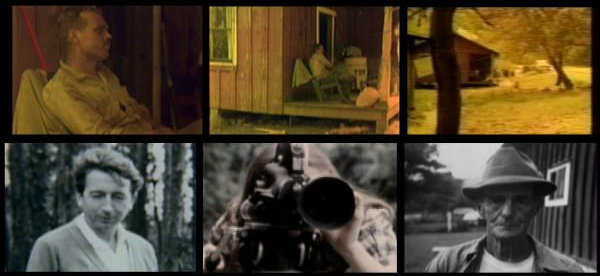“Stranger with a camera”
by Elizabeth Barret

“Stranger with a camera”
by Elizabeth Barret
“Why did you have to do that?” Hugh O’Connor’s last words stick in my thoughts whenever I think of “Stranger with a Camera.” Imagine being in a position where you know that someone has done something terrible and most people in that person’s community still support what he did. When Elizabeth Barret said “Values that bond people together are not always positive,” it resonated with me.
While I’m trying to think about the everyday struggle which goes on in the name of freedom of speech, I can’t help but think about the people who are imprisoned in my home country and are still at risk every single day. I recently learned about a group of journalists who were arrested: I wonder if I ever go back to my country, and work on a documentary about the situation of my own people, would I be greeted with guns or thrown in prison? What is a person to do when fighting with a camera or a pen? Is it even a fair battle? In the documentary it was mentioned that the camera’s power is like having a gun. It is Invasive, exploitative and not always accurate because it can be editorially manipulated. If the duty as a journalist means that one has a responsibility to inform and educate people to help bring about social change by walking the fine line between separating fact from fiction, then any society should be prepared to accept the truth no matter how uncomfortable.
However, the truth sometimes hurts, and that’s why most journalists are ultimate targets. What one covers within a small period of time might not cover the whole story but its aim is always truth, in my opinion, unless someone has ill intentions. While watching the documentary, I kept note of questions Elizabeth Barret raised throughout her narration. At one point she asks:
“ What is the difference between helping people see their own place and how others perceive it?” and I’ve asked myself the same question.”
How could you take a picture and make someone look bad? Isn’t what you capture simply a moment in someone’s life?
According to the documentary, some of the people who lived in the same town where the incident happened lived a happy, middle-class life. Therefore, understandably, they considered anyone who came to cover the story of the poor and impoverished as telling an incomplete and unfair version of their town’s story. They viewed them as “outside agitators.” I kept on wondering if this means that anyone should justify Hobart Ison’s act of murder. Do you have to be an “insider” to cover and know about a situation?
How could you push for social action and social change without embarrassing the people you cover? Those were the questions still lingering in my thoughts. What hit home for me, though, is what Barret said at the end of the documentary
“ Stay true to what you see and hope that it’s enough.”










